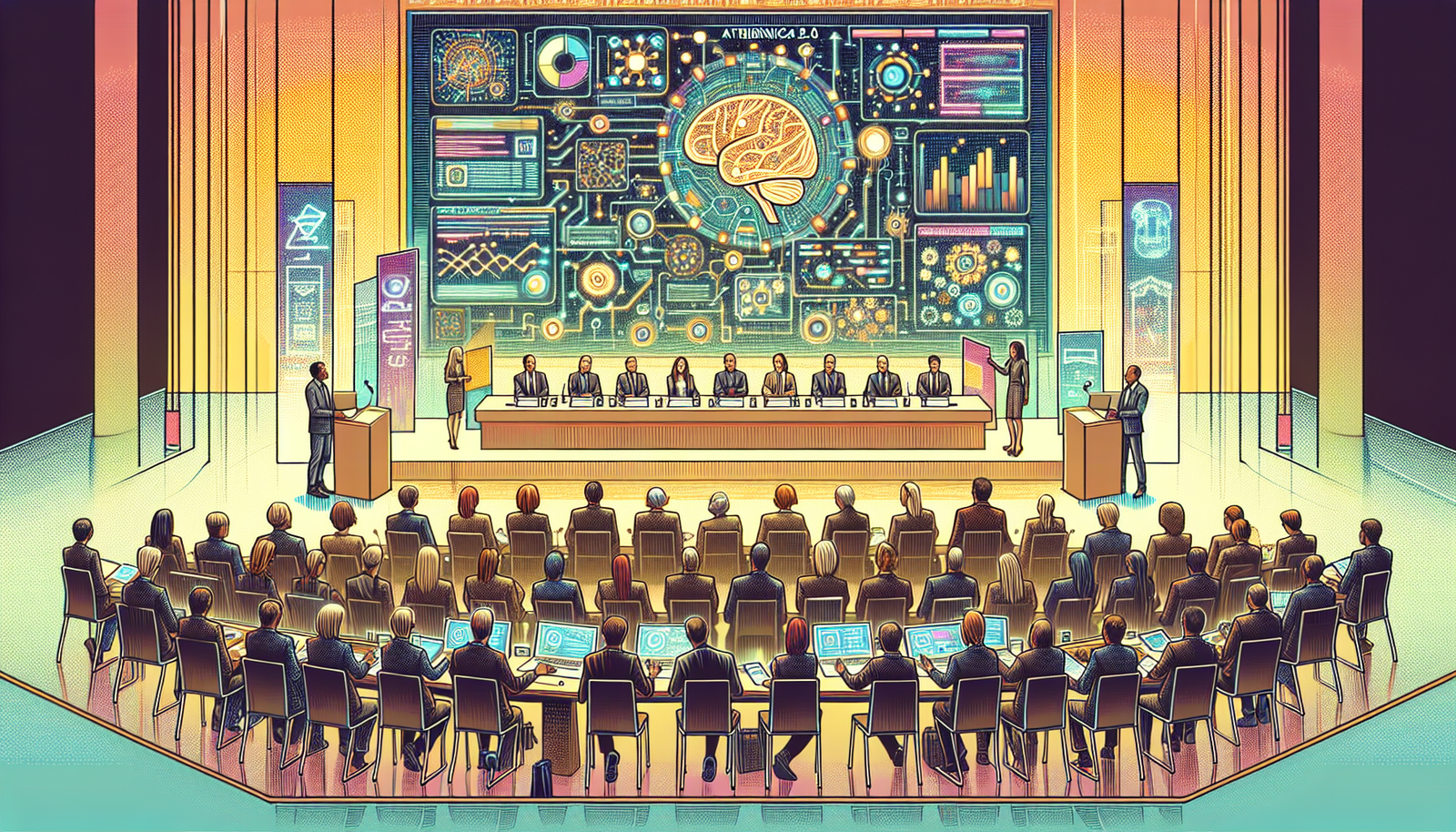Welcome to the exciting world of “Eureka 2.0: Artificial Intelligence Intercepting the Opportunities Between Atlanticism and Sovereignism.” This conference aims to explore the delicate balance between global cooperation and national interests in the age of AI. As technology continues to grow, the implications for both Atlanticist policies and sovereignist perspectives become increasingly complex. Join us as we delve into how artificial intelligence can serve as a bridge between these two ideologies, fostering dialogue and innovative solutions for a more interconnected future.
The Intersection of Two Ideologies
The Eureka 2.0 Conference, a fascinating confluence of ideas and technology, recently convened to tackle pressing questions surrounding the role of artificial intelligence in shaping contemporary geopolitical dynamics. With a panel of experts, including representatives from diverse fields ranging from international relations to AI technology, the conference sought to define how AI can navigate the treacherous waters between Atlanticism—a philosophy that champions global cooperation—and sovereignism, which emphasizes national autonomy and self-determination.
As we grapple with societal challenges and opportunities in the era of AI innovation, understanding how these ideologies can coexist is paramount. Let’s examine how technology intersects with global and national interests, providing a fertile ground for dialogue and collaboration.
Understanding Atlanticism and Sovereignism
At its heart, Atlanticism advocates for strong ties between North America and Europe, emphasizing shared values, collective security, and cooperative initiatives. It champions multilateralism and sees international institutions as essential for maintaining peace and stability. The Atlantic Council aptly summarizes this approach, reflecting on the benefits of collaboration in realms like defense, technology, and economic development.
On the flip side, sovereignism posits a critical view of supranational governance and globalized agendas. Advocates argue for prioritizing national interests over international obligations, often voicing skepticism toward multinational alliances and treaties. This perspective has gained traction particularly in recent years, as nations reassess the impact of global dynamics on local economies and cultural identity.
The Role of AI in Bridging the Gap
As the conference unfolded, attendees engaged with riveting discussions about the dual nature of AI technology. The consensus hailed AI as a unique mediator capable of adhering to both Atlanticist and sovereignist principles. Here are some intriguing insights shared:
- Facilitating Dialogue: AI can provide unbiased data analysis to foster communication between nations. By producing insights and predictions based on empirical evidence, AI tools can help bridge the ideological divide.
- Encouraging Collaboration: A cooperative approach to AI development can yield solutions to transnational challenges like climate change, cybersecurity, and trade. This aligns with Atlanticist ideals, showcasing how shared interests can lead to successful partnerships.
- Reinforcing Sovereignty: Sovereignist proponents can leverage AI to enhance national security and economic competitiveness. By focusing on local capabilities in the tech sector, nations can retain more control over their resources and data.
The philosophy surrounding AI’s role is as pivotal as its technological implications. The discussions at the Eureka Conference underscored that the narrative surrounding AI must move beyond mere technological prowess to focus on ethical frameworks that shape its integration within society.
The Ethical Considerations of AI Deployment
Perhaps one of the most enriching aspects of the Eureka Conference was the emphasis on ethics in AI deployment. As AI systems grow increasingly sophisticated, their potential to influence human lives becomes profound. Delegates discussed the challenges and responsibilities tied to AI governance, touching on the need for regulatory measures that prevent misuse while promoting innovation.
Key considerations included:
- Transparency: AI algorithms should be transparent and understandable to all stakeholders to encourage informed decision-making.
- Accountability: Developers and organizations must remain accountable for the consequences of AI systems, ensuring ethical standards are upheld.
- Inclusiveness: The design and implementation of AI tools must consider diverse perspectives, ensuring that various demographic groups have a voice in how technology is shaped and utilized.
The stakes are high, and as stressed by multiple keynote speakers, vigilance is essential. Igniting conversations around ethics not only assists in building trust but also reinforces social responsibility, a vital concern shared by both Atlanticist and sovereignist ideologies.
AI as an Economic Catalyst
Another significant topic arose around the economic potential of leveraging AI technologies. Experts argued that AI could drive productivity and innovation, creating new industries and job opportunities, and reskilling workers displaced by technological advancements. This assertion resonated with both philosophies, as observed during panel discussions:
- Boosting Global Trade: AI can facilitate smoother supply chains and trade processes, thereby benefiting international economic cooperation.
- Empowering Local Economies: Nations can harness AI-driven local solutions to bolster growth and job creation within their borders, aligning with the ethos of sovereignism.
The economic landscape is rapidly evolving, and realizing the full extent of AI’s potential requires both collaborative insights and robust policy frameworks. As we look toward a future interwoven with AI, establishing a synergistic relationship between nations will be crucial.
Future Implications and Opportunities
Looking ahead, the Eureka 2.0 Conference shed light on potential pathways for further collaboration between Atlanticists and sovereignists. Areas ripe for growth include:
- AI in Healthcare: Both ideologies can benefit from collaborative AI initiatives that improve healthcare access and predictive care models.
- Research and Development: Partnering on groundbreaking research can lead to advancements that benefit all parties involved while showcasing the value of Atlanticism.
- Cybersecurity Measures: Together, nations can work to develop AI systems that enhance their defenses against cyber threats, balancing cooperation and sovereignty.
Moreover, cross-continental initiatives in education and AI ethics can cultivate a new generation of tech-savvy individuals equipped to navigate the complexities of AI in a geopolitical context.
Conclusion: A Blueprint for Coexistence
The discussions at the Eureka 2.0 Conference proposed an optimistic vision for a future where Atlanticism and sovereignism can coexist harmoniously, fortified by the role of artificial intelligence. By embracing the potential for collaboration while respecting national interests, society can pave the way for innovative solutions that benefit humanity as a whole.
As we stand at the crossroads of technological advancement and ideological divergence, let us move forward with a commitment to dialogue, understanding, and the shared aspiration of a more interconnected and productive world. For more insights into the conference proceedings and related technological developments, please visit Neyrotex.com. Uniting the best of both worlds could be the breakthrough we need to navigate the complex challenges of our time, and together we can unlock untapped potential.
As we take these lessons to heart, remember: the future of AI promises a myriad of opportunities, as long as we choose to intercept them wisely.







